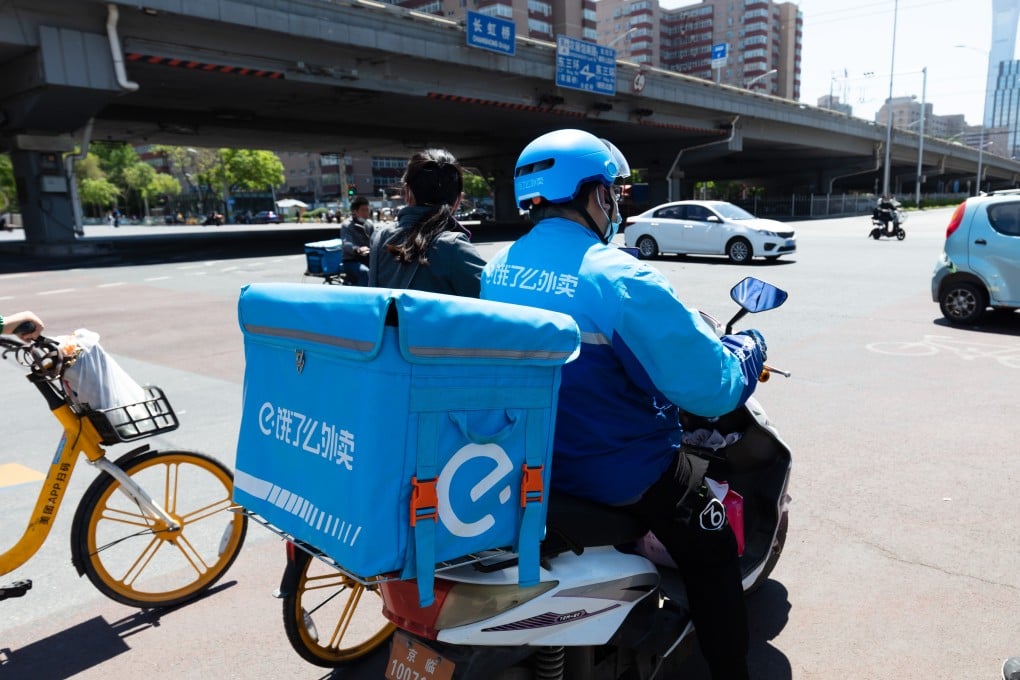Alibaba’s Ele.me food delivery platform extends welfare coverage to 3 million couriers with collective contract
- The contracts state that delivery fees should tie in with factors such as local consumer price index, delivery distance, and weather
- China has over 200 million flexible workers, defined as those without fixed-term contracts, many of whom work for the digital platforms of the country’s Big Tech firms

Alibaba Group Holding-backed Chinese food delivery service Ele.me has committed to bring more social security and welfare benefits to its roughly 3 million couriers, following a similar move by JD.com in March to include its flexibly employed logistics workers in the firm’s social welfare program.
The company held a meeting in Shanghai on Thursday, with 175 delegates approving and signing a collective contract and three specific contracts covering issues including wages, female employees and occupational health and safety, according to a report by state media Workers’ Daily.
The signing of the contracts, witnessed by officials from the All-China Federation of Trade Unions, is expected to provide the 3 million couriers for China’s second-largest food service platform with a wide range of social welfare benefits usually beyond the reach of the country’s growing flexible workforce.
China has over 200 million flexible workers, defined as those without fixed-term contracts, many of whom work for the digital platforms of the country’s Big Tech firms, such as Alibaba’s Taobao marketplace, Meituan’s food delivery service, and Didi’s driver platform.
These workers are not covered by social security benefits, a situation that has long raised the ire of local governments in China.
In January 2022, the National Development and Reform Commission (NRDC) published a document on facilitating the healthy growth of the Big Tech platforms, where it made a call to increase “the rights and interests” of the flexibly employed.